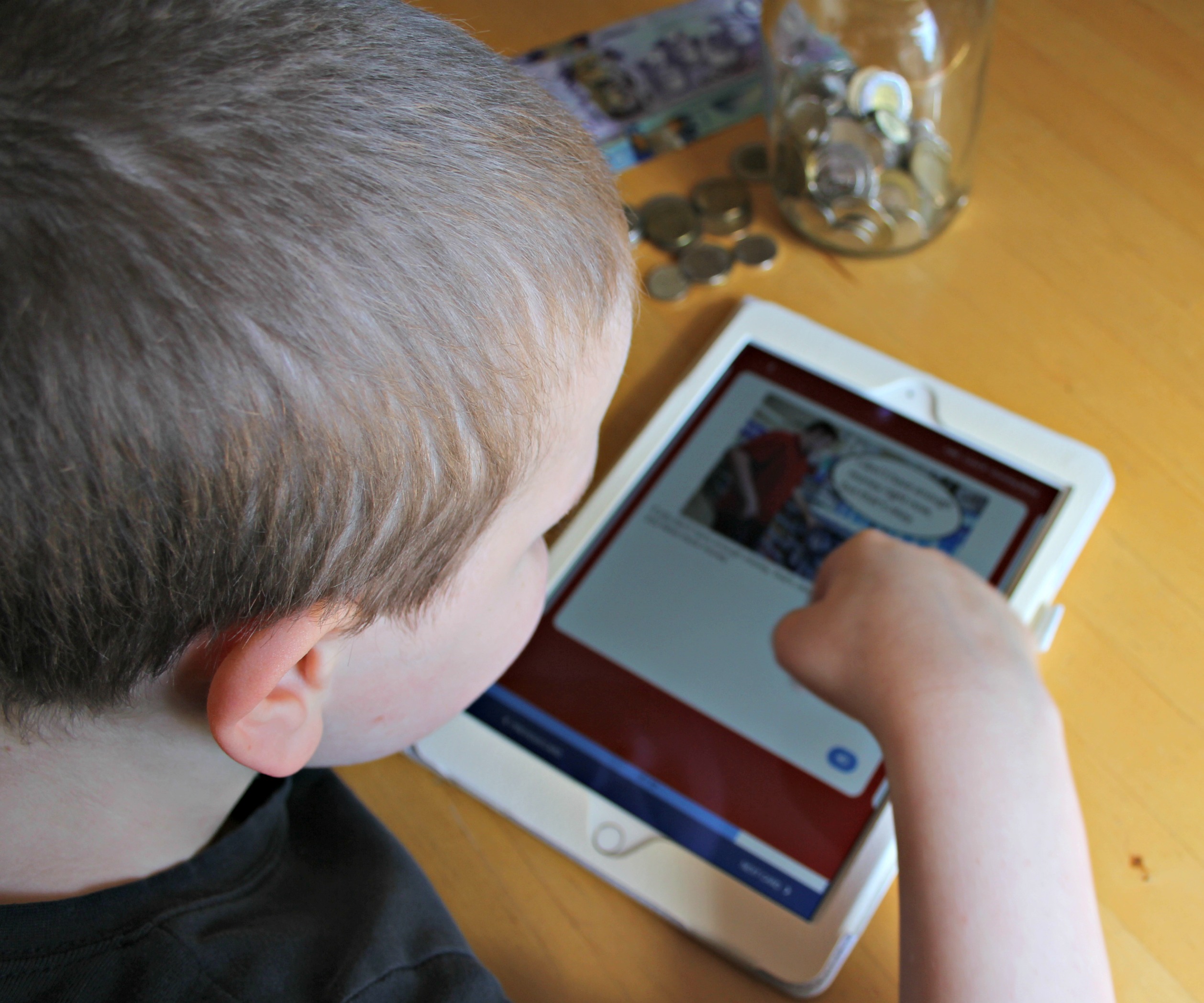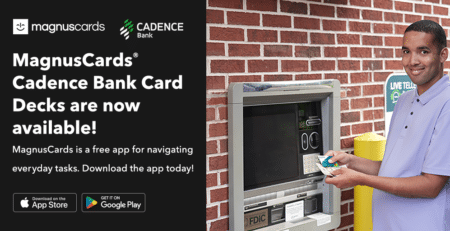Living with autism and other neurodiversities in today’s world can be challenging. Tasks like ordering food in a restaurant, acquiring a library card or depositing a cheque with no guidance can be incredibly stressful, especially for those who thrive on routine. With any new situation, understanding the process beforehand and knowing what comes next is crucial, which is why MagnusCards’ digital, step-by-step guides are so helpful. Businesses who partner with Magnusmode are removing barriers to inclusion by leveraging the MagnusCards platform to map out their products and services in digitalized, step-by-step instructions, providing guests with the support they need to gain confidence and have a successful experience.
CIBC Card Decks empower users with visual, step-by-step instructions on important financial tasks, like withdrawing cash from an ATM, using a debit card, or receiving an e-transfer.
Patti B., a resident of Vancouver and mom to two autistic sons was interested in trying out the CIBC Card Decks after seeing a post about them on Facebook.
“We were interested in the CIBC Card Decks because we wanted to help the boys develop some practical skills, and my youngest Gabe had shown an interest in how the ATM worked. Financial literacy is important to Gabe’s development at this stage because he’s at an age where he sees his older siblings going out and wants to join in. For both boys, I wanted to provide them with a blueprint so they can understand what’s going to happen and avoid the anxiety caused by uncertainty. Also, knowing what should happen minimizes the chances of something going wrong, and them not noticing.”
Patti’s sons are on opposite ends of the autism spectrum. Fourteen-year-old Gabe is effectively non-verbal.
“Gabe has great trouble forming words, and people who are not familiar with him do not understand him at all. His vocabulary is limited to single words, usually to express a need such as “drink” or his new favorite “gum.” He doesn’t cope well with changes to his routine, nor does he like to leave the house or interact with people outside of the family. We make a point of ensuring he does go out and interact as much as he is able to, but we don’t force him if he’s showing signs of getting upset.”
Jay, 25, who has a milder case, still lives at home, and doesn’t like to socialize.
“Most people don’t realize Jay is on the spectrum when they first meet him. It’s only when you spend more time with him that you begin to notice. He’s kind, thoughtful, and has ‘big’ emotions, so sometimes if he’s upset, he can be quite ‘shouty’ without meaning to be. However, now that he is older, he recognizes this more and takes himself away to calm down when he’s feeling overly passionate about something.”
Because of their differences, Gabe and Jay utilized the Card Decks in different ways. Patti let Gabe explore the Card Decks and absorb the information on his own first. Once he was finished, she joined him with a jar of money, and they worked on his counting. They also role-played banking scenarios.
Jay, on the other hand, wanted to experience the Card Decks solo.
“Jay ran through the Card Deck alone because he is ‘too old for mom’s help.’ He uses it to understand what to expect in a new situation before he has to experience it. Not knowing what will happen is extremely anxiety-inducing for him, so having a Card Deck to view before going to the bank reassures him that he’s not doing something wrong.”
Representation matters. As a young adult, Jay appreciates that the Card Decks include images of people his age.
“Seeing other young adults on the Card Decks has been really important. If they had been early teens or kids, he would not have used the decks, feeling they were too childish.”
Patti liked the CIBC Card Decks so much, she incorporated them into Gabe’s homeschooling lessons, and it’s made a difference. Despite his aversion to interacting with anyone outside his family, Gabe is interested in going out and making a purchase at a store.
“We use the Buying Something with Money Card Deck regularly with Gabe. Getting him to be comfortable and confident enough to go to a store and make a purchase will be a very long, slow process, but being able to reference the Card Deck at least once or twice a week helps to reinforce the steps. This makes me more confident that Gabe will eventually achieve at least a small degree of independence.”
That’s all Patti wants for her boys, for them to achieve some level of confidence and independence. And that’s the magic of CIBC’s MagnusCards.
“I am incredibly grateful to have a resource that is respectful of the boys’ self-image. It definitely helps to ease some of the worries about Jay currently, and Gabe eventually, going out into the community alone, and being able to cope. Socially inappropriate behaviours often happen as a result of anxiety, so being able to reduce their anxiety, and subsequently, reduce the risk of problems is amazing.”







